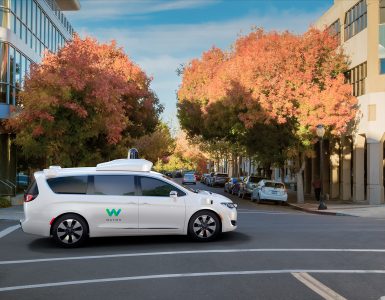Arizona has been closely associated with autonomous vehicle technology for a few years now, since Gov. Doug Ducey signed legislation to allow testing and development in 2015. From autonomous Uber ride sharing in Phoenix to Waymo autonomous vans in the suburbs or self-driving big rigs in the Tucson area, Arizona has been a lucrative destination for tech companies to test with little regulation.
Now, the University of Arizona is touting a partnership with state and local government agencies to help the surrounding Tucson area take the mantle as an industry leader in smart-vehicle technology. While the public is still wrapping its head around driverless cars, innovators in Tucson are ushering in opportunities to help develop and champion artificial intelligence within an automobile’s cabin and under its hood.
Smart Vehicles and Intelligent Transportation (SVIT) brings together government, academia and industry to help promote the region as a destination for the burgeoning industry. The UA Tech Park will play host to a day-long conference from SVIT on January 23rd that outlines the partnership and the technology.
The Arizona Department of Transportation, the city of Tucson, Pima Association of Governments, Pima Community College, Pima County, and the Arizona Commerce Authority are some of the entities involved in the innovative group spearheading the development of the technology in the region. Another component of the group is the University of Arizona Transportation Research Institute.
The Transportation Research Institute has been involved in self-driving technology in vehicles and intelligent transportation through UofA’s College of Engineering; more specifically, the university’s Advanced Traffic and Logistics Algorithms and Systems. The aim by the Transportation Research Institute is to better understand traffic-control design, an area of research that highlights the communication between smart vehicles and traffic signals to ensure and enhance the safety of passengers on the road.
“The vision of SVIT is for Southern Arizona to be an industry leader in developing and employing smart vehicle and intelligent transportation technologies to address community needs, attract and grow the industry and drive our economy,” an SVIT spokesperson said in a statement.
The university is also touting its Cognitive and Autonomous Test Program, which allows students from all over the country to test their self-driving vehicle design at the UofA.
Even though Uber had to put autonomous vehicle testing on hold following a fatal pedestrian-related incident last March in Tempe, Arizona is still poised to be a leader in testing and production. For example, Gov. Ducey signed legislation last May that allows small, automated delivery vehicles to drive on sidewalks.
On top of that, autonomous services outside of ridesharing are being tested in the state. In Scottsdale, Kroger (Fry’s) stores are testing self-driving delivery vehicles, delivering groceries to customers who choose to put the fate of their frozen vegetables in the hands of a driverless pod monitored by engineers in another vehicle.
Back in Tucson, China-based TuSimple has been working to develop its self-driving commercial truck technology since landing in the Old Pueblo in 2017. Local highways have seen the company’s commercial vehicles making small local deliveries and will soon take to Interstate 10 to haul goods between Phoenix and Tucson.
“Arizona has the most rational system for testing autonomous vehicles,” TuSimple vice president Chuck Price said at a news event last fall. “The regulatory climate is correct. We’re also impressed with the talent in Tucson. We have a very strong partnership with the University of Arizona and with Pima Community College.”
The company has brought jobs to the region, with another 500 positions projected to open up in the next two years.
















Add comment